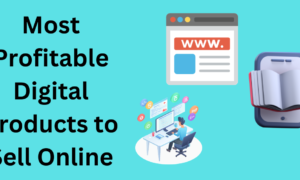In today’s cutthroat digital realm, fine-tuning your online business isn’t merely an option—it’s a prerequisite. Whether you’re eyeing a business sale or aiming to fortify its value for forthcoming expansion, deliberate optimization holds immense sway over the eventual sale price. This article embarks on a journey through potent strategies geared towards elevating the worth of your online enterprise, a pursuit pivotal for commanding a premium price tag in the market.
Understanding the Factors Affecting Sale Price
The price at which an online business is sold is shaped by various elements, encompassing market trends, brand standing, and financial health. Grasping the nuances of these factors is paramount for crafting a holistic optimization blueprint. Businesses can position themselves favorably in the marketplace by dissecting market dynamics, nurturing brand equity, and enhancing financial robustness.
This comprehension forms the bedrock for formulating a multifaceted strategy to fine-tune operations, amplify value propositions, and ultimately bolster the business’s attractiveness to potential buyers.
Market Trends and Demand
Market dynamics exert a substantial influence on the valuation of your online venture. Scrutinizing market trends and gauging the demand for your offerings are pivotal steps in uncovering avenues for expansion and carving out a competitive edge. Businesses can pinpoint growth opportunities by delving into consumer preferences, industry shifts, and emerging trends and fine-tune their strategies accordingly.
This proactive approach enables enterprises to stay abreast of market fluctuations, identify untapped niches, and tailor their offerings to meet evolving consumer needs. Ultimately, a nuanced understanding of market dynamics empowers businesses to position themselves strategically, enhance their value proposition, and navigate the competitive landscape with agility and foresight.
Brand Reputation and Goodwill
A robust brand identity and favorable customer perception enhance a business’s perceived worth. By investing in brand-building endeavors and fostering strong customer relationships, enterprises can cultivate goodwill and augment their appeal to prospective buyers. These efforts bolster brand recognition and loyalty and instill trust and confidence in the business’s offerings.
Consistent delivery of quality products or services, coupled with effective communication and engagement initiatives, reinforces the brand’s reputation and elevates its desirability in the eyes of potential acquirers. Ultimately, a strong brand foundation serves as a valuable asset that enhances the marketability and value proposition of the business, paving the way for tremendous success and profitability.
Financial Performance and Profitability
Potential buyers are attracted to businesses that exhibit stable financial performance and profitability. Enhancing revenue streams, optimizing cost management, and maximizing profits are critical steps in elevating the sale price of your online venture. By diversifying income sources, implementing cost-saving measures, and enhancing operational efficiency, businesses can bolster their financial health and attractiveness to investors. Consistent profitability improves the company’s perceived value, mitigates risks, and instills confidence in potential buyers.
Through prudent financial management and strategic decision-making, enterprises can position themselves for a higher sale price, reflecting the strength and sustainability of their business model. Ultimately, a focus on financial performance serves as a key driver in increasing the overall value and appeal of the online business in the eyes of prospective purchasers.
Strategies for Increasing Sale Price
Creating a Solid Business Foundation
Establishing a sturdy business foundation is essential for sustained success and value generation. Prioritizing brand cultivation and customer contentment fortifies your business’s market standing, laying the groundwork for longevity and growth. Through diligent attention to brand identity and proactive efforts to meet customer needs, companies can foster loyalty, trust, and differentiation in a competitive landscape, positioning themselves for enduring success and value creation.
Building a Strong Brand Identity
A compelling brand identity is a beacon in the crowded marketplace, setting your business apart and fostering consumer trust. Strategic investments in branding, including captivating logo design, cohesive messaging, and appealing visual elements, are pivotal in crafting a distinctive and memorable brand persona. These initiatives capture attention and resonate with your target audience, forging emotional connections and instilling confidence in your offerings.
By cultivating a strong brand presence, businesses can develop loyalty, command premium pricing, and differentiate themselves from competitors. Consistent reinforcement of brand values and aesthetics reinforces brand recognition and loyalty, ultimately contributing to long-term success and sustained growth.
Improving Customer Satisfaction and Loyalty
Customer satisfaction is the cornerstone of brand loyalty and advocacy. By delivering exceptional customer service, actively soliciting feedback, and implementing necessary improvements, businesses can cultivate a positive customer experience and foster lasting loyalty. Engaging with customers throughout their journey demonstrates care and attentiveness and provides valuable insights into their preferences and pain points.
Businesses can nurture solid relationships and transform satisfied customers into enthusiastic brand advocates by addressing customer concerns promptly and continuously striving to exceed expectations. These loyal supporters contribute to repeat business and positive word-of-mouth referrals and serve as invaluable ambassadors, driving growth and credibility for the company in the long run.
Enhancing Financial Performance
Enhancing financial performance is integral to boosting the sale price of your online enterprise. Businesses can bolster profitability and appeal to potential buyers by maximizing revenue streams and minimizing costs. Diversifying income sources, exploring new markets, and refining pricing strategies can augment revenue generation while implementing efficient operational processes and leveraging technology can reduce overheads. Focusing on financial optimization enhances short-term profitability and underscores the business’s resilience and growth potential, making it more attractive to investors.
By demonstrating a solid track record of economic success and stability, companies can command a higher sale price, reflecting the intrinsic value and potential for future growth. Ultimately, optimizing financial performance is a strategic imperative for unlocking the total value of your online business in the market.
Increasing Revenue Streams
Diversifying revenue streams is vital for business resilience and growth. By expanding product or service offerings, tapping into new markets, or implementing subscription models, businesses can mitigate risks associated with reliance on a single income source while driving revenue growth. Offering complementary products or services caters to varying customer needs and fosters cross-selling opportunities, maximizing lifetime value.
Exploring new markets enables businesses to tap into untapped demographics or geographic regions, diversifying their customer base and revenue streams. Additionally, subscription models provide a steady stream of recurring revenue, enhancing predictability and sustainability. Overall, diversification bolsters revenue and strengthens the business’s financial stability and longevity, positioning it for sustained success in a dynamic market landscape.
Reducing Operational Costs
Efficiency is critical to optimizing operational costs and enhancing profitability. Businesses should identify areas ripe for streamlining operations and trimming unnecessary expenses. Embracing technology solutions to automate repetitive tasks boosts productivity and frees up resources for strategic initiatives. Negotiating favorable terms with suppliers and optimizing resource allocation can yield significant cost savings, reduce overheads, and improve bottom-line performance.
By scrutinizing operational processes and leveraging data-driven insights, businesses can identify inefficiencies and implement targeted improvements to enhance efficiency and competitiveness. This proactive approach maximizes operational effectiveness and strengthens the business’s financial health and resilience. Ultimately, companies can achieve sustainable growth and profitability in a competitive market landscape by optimizing operations and reducing expenses.
Streamlining Operations for Efficiency
Efficient operations are fundamental to unlocking maximum productivity and profitability within a business. Leveraging automation tools and outsourcing non-core functions allow for streamlining operations, freeing up valuable time and resources. Automation minimizes manual labor, reduces errors, and increases efficiency across various processes, from inventory management to customer service. Outsourcing non-essential tasks to specialized service providers enables businesses to tap into external expertise, lower costs, and focus internal efforts on core activities that drive growth and innovation.
By optimizing workflows and eliminating inefficiencies, businesses can enhance their competitive edge, respond more effectively to market demands, and ultimately achieve higher levels of profitability. Embracing efficient operations boosts short-term performance and positions the business for long-term success and sustainability in today’s dynamic business landscape.
Automation and Technology Integration
Implementing software tools and systems for automation is instrumental in streamlining business operations. Businesses can significantly enhance efficiency and productivity by automating routine tasks such as inventory management, order processing, and customer support. These tools minimize manual intervention, reduce errors, and accelerate processes, allowing employees to redirect their time and energy toward strategic initiatives that fuel growth. With automation, employees can focus on high-value activities such as innovation, customer relationship management, and business development, driving overall performance and competitive advantage.
Moreover, automation fosters scalability, enabling businesses to handle increased workloads without proportionally increasing resource allocation. By leveraging technology to automate repetitive tasks, companies can optimize resource utilization, enhance operational effectiveness, and position themselves for sustained success in today’s fast-paced business environment.
Outsourcing Non-Core Functions
Outsourcing non-core functions to external service providers offers businesses numerous benefits. Companies can tap into specialized expertise without needing in-house resources by delegating accounting, IT support, and logistics tasks. This ensures that professionals with specific skill sets handle tasks and allows businesses to access the latest technologies and best practices in these areas. Additionally, outsourcing helps reduce staffing costs associated with hiring and training internal employees and overhead expenses related to maintaining infrastructure and equipment.
Furthermore, outsourcing provides scalability, enabling businesses to adjust their operations more flexibly in response to changing demands and market conditions. Outsourcing allows companies to focus on their core competencies while leveraging external partners to manage non-essential functions efficiently, ultimately driving productivity and competitiveness.
Investing in Marketing and Promotion
Effective marketing and promotion are crucial in capturing customer attention and elevating brand visibility. Leveraging digital channels and targeted advertising campaigns enables businesses to reach their target audience with precision and impact. Businesses can amplify their brand message and engage with customers meaningfully by harnessing the power of social media, email marketing, and content marketing.
Moreover, targeted advertising allows businesses to tailor their messaging to specific demographics, interests, and behaviors, maximizing the relevance and effectiveness of their campaigns. This strategic approach expands the reach and drives sales growth by attracting qualified leads and nurturing customer relationships. In today’s digital age, a well-executed marketing strategy is essential for staying competitive and establishing a solid brand presence.
Leveraging Digital Marketing Channels
Leveraging digital marketing channels, including social media, email marketing, and content marketing, presents businesses with powerful tools to engage their target audience and drive effective promotion of products or services. By strategically utilizing these platforms, companies can tailor their marketing efforts to align with the preferences and interests of their audience, thereby increasing the relevance and impact of their campaigns. Social media allows for direct customer interaction, fostering engagement and brand loyalty.
Email marketing enables personalized communication and targeted messaging, enhancing the likelihood of conversion. Through valuable and relevant content, content marketing establishes credibility and authority within the industry, attracting and retaining customers. By embracing these digital channels and crafting compelling marketing strategies, businesses can effectively connect with their audience, drive brand awareness, and ultimately achieve their marketing objectives in today’s competitive landscape.
Engaging in Targeted Advertising Campaigns
Investing in targeted advertising campaigns on platforms such as Google Ads, Facebook Ads, and LinkedIn Ads offers businesses a strategic approach to reaching potential customers with tailored messaging. By leveraging demographic targeting, companies can deliver ads specifically to audiences based on age, location, interests, and behavior, ensuring relevance and resonance. Retargeting strategies enable businesses to re-engage with users who have previously interacted with their website or content, increasing the likelihood of conversion.
Additionally, A/B testing allows companies to experiment with different ad creatives, messages, and targeting criteria to identify the most effective combinations and optimize ad performance. This data-driven approach maximizes return on investment (ROI) and allows businesses to refine their advertising strategies over time, ultimately driving better results and achieving their marketing objectives.
Expanding Your Customer Base
Diversifying your customer base is critical for ensuring sustained growth and resilience in market fluctuations. By expanding the range of products or services offered and exploring new markets or demographics, businesses can spread risk and seize untapped opportunities for expansion. Offering a diverse portfolio caters to varying customer needs and preferences and reduces dependence on any single market segment or revenue stream, enhancing stability and sustainability.
Moreover, venturing into new markets or demographics allows businesses to capitalize on emerging trends, tap into unexplored niches, and unlock fresh sources of revenue. This proactive approach fosters business resilience, innovation, and adaptability, positioning the business for long-term success and competitive advantage in a dynamic marketplace.
Diversifying Products or Services
Expanding product or service offerings is a strategic move to broaden a business’s appeal and tap into new market segments. Through thorough market research, companies can uncover unmet needs or emerging trends, providing valuable insights for product development. By developing innovative solutions that address these gaps in the market, businesses can position themselves as industry leaders and capture market share.
Moreover, expanding offerings allows businesses to cater to a broader audience, diversifying revenue streams and reducing dependence on a single product or service. By continuously evolving and adapting to changing market demands, businesses can stay ahead of the competition and maintain relevance in today’s dynamic business landscape. Ultimately, expanding offerings drives growth, fosters innovation, and strengthens the business’s competitive position in the market.
Exploring New Markets and Demographics
Identifying untapped markets or demographic segments is crucial for expanding a business’s reach and impact. Businesses can strategically target these new audiences by aligning with their objectives and growth strategy. Tailoring marketing messages and product offerings to resonate with the preferences and needs of these demographics ensures relevance and appeal, fostering connection and engagement. Conducting thorough market research helps understand the target audience’s unique characteristics and behaviors, enabling businesses to craft compelling messaging and offerings that address their specific pain points and desires.
By effectively tapping into these untapped markets, businesses can unlock new opportunities for growth and diversification, ultimately strengthening their competitive position and driving long-term success. Adaptability and responsiveness to changing market dynamics are vital in seizing these opportunities and maximizing business potential.
Building Relationships with Suppliers and Partners
Collaborating with suppliers and strategic partners bolsters a business’s capabilities and resilience. By fostering mutually beneficial relationships, companies can access valuable support and resources that enhance operational efficiency and drive growth. Negotiating favorable terms with suppliers ensures cost efficiencies and strengthens supply chain management, minimizing disruptions and improving reliability. Strategic partnerships enable businesses to leverage complementary strengths and resources, accelerating innovation and market penetration.
Moreover, collaboration fosters a sense of shared purpose and commitment, fostering trust and loyalty among partners. Through effective partnerships, businesses can navigate challenges more effectively, capitalize on new opportunities, and achieve mutual success. By prioritizing collaboration and relationship-building, companies can forge a strong network of allies and stakeholders contributing to their long-term success and sustainability.
Negotiating Favorable Terms and Contracts
Establishing transparent and mutually beneficial agreements with suppliers and vendors is vital for securing competitive pricing, favorable payment terms, and reliable delivery schedules. Businesses can enhance collaboration and drive mutual success by fostering open communication and cultivating long-term partnerships based on trust and mutual respect. Transparent agreements ensure clarity and fairness in all transactions, minimizing misunderstandings and disputes. Moreover, by aligning incentives and objectives, businesses and suppliers can work towards shared goals, driving innovation and continuous improvement.
Cultivating strong relationships with suppliers fosters loyalty and commitment and provides a competitive advantage in the marketplace. By prioritizing transparency, fairness, and open communication in supplier relationships, businesses can optimize supply chain management, reduce costs, and enhance operational efficiency, ultimately driving long-term success and sustainability in today’s competitive business environment.
Collaborating for Mutual Growth
Exploring partnership opportunities with complementary businesses or industry stakeholders is a strategic approach to unlocking synergies and expanding market reach. Joint ventures, co-marketing campaigns, and strategic alliances enable businesses to pool resources, expertise, and networks, creating new growth and market penetration avenues. By collaborating with partners with similar goals and target audiences, businesses can amplify their brand presence, tap into new markets, and access new customer segments.
Moreover, partnerships facilitate knowledge exchange and innovation, fostering creativity and competitiveness. Businesses can leverage each other’s strengths and capabilities through strategic alliances to address market challenges and capitalize on emerging opportunities. By embracing partnership opportunities, companies can enhance their competitive edge, drive sustainable growth, and achieve mutual success in today’s dynamic business landscape.
Optimizing Your Online Presence
Your online presence is a digital representation of your business, akin to a virtual storefront, shaping customer perceptions and influencing purchasing decisions. Optimizing your website design, user experience, and search engine visibility is crucial for bolstering this presence and attracting more visitors. A well-designed website with intuitive navigation and fast loading times enhances user experience, encouraging visitors to explore further and engage with your content.
Moreover, optimizing for search engines increases visibility, ensuring that your business is easily discoverable by potential customers searching for relevant products or services. By prioritizing these aspects of your online presence, you can effectively showcase your brand, build trust with visitors, and ultimately drive conversions, laying the foundation for sustained growth and success in the digital marketplace.
Enhancing Website Design and User Experience
Investing in professional website design and development is essential for creating a visually captivating and user-friendly online platform. A well-crafted website enhances brand image and plays a crucial role in engaging visitors and driving conversions. Prioritize intuitive navigation, ensuring visitors can easily find the information they need and navigate the site effortlessly. Fast loading times are imperative to prevent visitor frustration and abandonment, while mobile responsiveness ensures a seamless browsing experience across devices.
Businesses can deliver a positive user experience by focusing on these elements, encouraging prolonged engagement, and fostering trust with visitors. Ultimately, a professionally designed website not only attracts more visitors but also enhances brand credibility and lays the groundwork for achieving business objectives in the digital realm.
Implementing SEO Strategies for Higher Visibility
Optimizing your website for search engines is essential for improving its visibility and attracting organic traffic. Incorporating relevant keywords, meta tags, and optimized content helps search engines understand the relevance of your site to user queries, increasing the likelihood of appearing in search results. Regularly updating your site with fresh and valuable content keeps visitors engaged and signals to search engines that your site is active and relevant.
Additionally, earning backlinks from reputable sources enhances your site’s authority and credibility, boosting its search engine rankings. Improving page load speed is crucial for providing a seamless user experience and positively impacting search engine rankings. By implementing these strategies, businesses can enhance their online presence, drive organic traffic, and achieve better visibility and higher rankings in search engine results pages.
Monitoring and Analyzing Performance Metrics
Data-driven decision-making is indispensable for optimizing business performance and identifying areas for enhancement. By tracking key performance indicators (KPIs) and analyzing business metrics, organizations can glean valuable insights into their operations, customer behavior, and market trends. This data empowers businesses to make informed decisions, allocate resources effectively, and prioritize initiatives that yield the greatest return on investment.
Additionally, data-driven insights enable businesses to identify emerging opportunities, mitigate risks, and adapt swiftly to changing market dynamics. Whether analyzing sales figures, customer feedback, or website traffic, harnessing data allows businesses to identify trends, patterns, and correlations that inform strategic decision-making. Ultimately, embracing a data-driven approach empowers businesses to stay agile, competitive, and responsive in today’s dynamic business landscape, driving sustained growth and success.
Tracking Key Performance Indicators (KPIs)
Identifying and monitoring key performance indicators (KPIs) pertinent to business goals and objectives is crucial for gauging performance and guiding strategic decisions. KPIs like sales revenue, customer acquisition cost, conversion rate, and customer lifetime value provide invaluable insights into various aspects of business performance. Leveraging analytics tools and dashboards allow businesses to visualize data trends and performance metrics effectively. By tracking KPIs over time, companies can assess progress toward goals, identify areas for improvement, and make informed adjustments to strategies.
Moreover, data visualization facilitates clear communication and understanding of organizational performance metrics, fostering a data-driven culture and alignment toward common objectives. Regular monitoring and analysis of KPIs enable businesses to stay agile, responsive and focused on driving sustainable growth and success in today’s competitive landscape.
Making Data-Driven Decisions
Relying on factual data and insights, rather than gut feelings or intuition, is paramount for making informed business decisions. Regular performance reviews and data analysis enable businesses to identify trends, patterns, and opportunities for optimization and growth. Companies can uncover actionable insights that guide strategic decision-making and resource allocation by scrutinizing key metrics and analyzing data trends. This data-driven approach minimizes the risk of subjective biases and ensures decisions are grounded in empirical evidence, increasing the likelihood of success.
Additionally, leveraging data analysis tools and techniques allows businesses to extract valuable insights from large datasets efficiently. Embracing a culture of evidence-based decision-making fosters accountability, transparency, and continuous improvement within the organization, ultimately driving better outcomes and sustained growth. In today’s dynamic business landscape, leveraging data as a cornerstone of decision-making empowers businesses to stay competitive and agile amidst evolving market conditions.
Preparing Comprehensive Documentation
Thorough documentation is indispensable for presenting your business favorably to potential buyers. Organizing financial records, highlighting growth potential, and showcasing achievements are essential to building credibility and instilling confidence in prospective investors. Detailed financial records provide transparency and insight into the business’s economic health, demonstrating stability and potential for growth. Highlighting growth opportunities, such as untapped markets or innovative products/services, underscores the business’s potential for future success.
Additionally, showcasing past achievements, such as successful projects or accolades, further enhances the business’s reputation and value proposition. By presenting comprehensive documentation, companies can effectively communicate their strengths, achievements, and growth potential, attracting potential buyers’ interest and maximizing the sale price. This meticulous approach instills confidence and facilitates a smoother due diligence process, ultimately leading to a successful business transaction.
Organizing Financial Records and Reports
Compiling accurate and current financial statements, such as income statements, balance sheets, and cash flow statements, is essential for presenting a transparent overview of your business’s economic health. These documents offer valuable insights into revenue, expenses, assets, liabilities, and cash flow, providing stakeholders with a comprehensive understanding of the business’s financial performance. Alongside the financial statements, clear explanations of economic trends and performance indicators should be provided, emphasizing areas of strength and identifying opportunities for improvement.
By presenting transparent and detailed financial information, businesses can build trust and confidence among investors, lenders, and potential buyers, facilitating informed decision-making and fostering positive relationships. Maintaining up-to-date financial records also enables businesses to track progress, identify financial challenges, and implement long-term economic sustainability and growth strategies.
Highlighting Growth Potential and Achievements
Crafting a compelling narrative around your business’s unique value proposition and growth potential is crucial for standing out in a competitive market. By articulating key differentiators and growth opportunities through engaging narratives and case studies, businesses can effectively communicate their value to potential clients or investors. Showcasing past successes, client testimonials, and industry accolades adds credibility and authenticity to your brand, reinforcing trust and confidence. These tangible examples highlight the results achieved and demonstrate your ability to deliver value and meet client needs effectively.
By leveraging storytelling techniques and real-world examples, businesses can create memorable impressions and differentiate themselves from competitors, ultimately attracting new opportunities and driving growth. This strategic approach to narrative communication captivates audiences and establishes a strong foundation for long-term success and sustainable development.
Engaging Professional Advisors
Seeking guidance from experienced professionals is essential for navigating the intricacies of selling your online business and optimizing its value. Engaging the services of business brokers, consultants, and legal advisors provides access to specialized expertise and support throughout the sale process. Business brokers offer invaluable insights into market trends, valuation methodologies, and negotiation strategies, helping sellers secure favorable deals. Consultants can provide strategic advice on preparing the business for sale, identifying areas for improvement, and maximizing its attractiveness to potential buyers.
Legal advisors ensure compliance with regulatory requirements, draft contracts, and safeguard sellers’ interests throughout the transaction. By leveraging the knowledge and experience of these professionals, sellers can streamline the selling process, minimize risks, and achieve the best possible outcome in terms of sale price and terms. Ultimately, investing in expert guidance is instrumental in realizing the full potential of your online business sale.
Seeking Guidance from Business Brokers and Consultants
Collaborating with seasoned business brokers and consultants specializing in online business sales is paramount for success in the sales process. These professionals bring valuable insights into market trends, valuation methodologies, and negotiation strategies, providing sellers a competitive edge. By tapping into their expertise, sellers can identify qualified buyers, assess market demand, and strategically position their businesses for sale.
Moreover, brokers and consultants assist in structuring deals, negotiating terms, and navigating complex legal and regulatory requirements, ensuring a smooth and compliant transaction process. Their knowledge and experience streamline the selling process, mitigate risks, and optimize outcomes regarding sale price and terms. With the guidance of these experts, sellers can maximize the value of their online businesses and achieve successful outcomes in the competitive marketplace.
Conducting Thorough Due Diligence
Conducting thorough due diligence on potential buyers is crucial for ensuring a successful and secure business sale transaction. Assessing their financial capability, industry experience, and alignment with your business goals helps gauge their buyer suitability. Verification of credentials, including financial statements and references, provides insights into their ability to finance the purchase and manage the business effectively post-acquisition. Conducting background checks ensures transparency and helps identify any red flags or potential risks associated with the buyer.
Maintaining open communication and transparency throughout the transaction process is essential for building trust and mitigating risks. By diligently vetting potential buyers, sellers can safeguard their interests, minimize the likelihood of unforeseen issues, and maximize the possibility of a smooth and successful business sale.
Preparing for the Due Diligence Process
Preparing thorough documentation and addressing potential red flags preemptively are critical steps to facilitate a seamless due diligence process during a business sale. Comprehensive documentation, including financial records, contracts, and operational procedures, provides transparency and clarity to potential buyers, demonstrating the business’s stability and viability. Proactively identifying and addressing potential issues or concerns, such as legal disputes or outstanding liabilities, helps build trust and confidence with buyers and minimizes the likelihood of delays or renegotiations later in the process.
By ensuring the accuracy and transparency of information presented during due diligence, sellers can instill confidence in buyers, streamline the transaction process, and increase the likelihood of a successful sale. Ultimately, meticulous preparation and transparency are crucial to navigating due diligence efficiently and achieving a favorable outcome for all parties involved.
Ensuring Transparency and Accuracy of Information
Offering comprehensive and precise details regarding your business operations, financial performance, and legal compliance is imperative during a business sale. Disclosing any potential risks or liabilities upfront and being ready to address buyer inquiries transparently demonstrates integrity and fosters trust and credibility. Providing accurate information enables potential buyers to make informed decisions, reducing the likelihood of surprises or disputes later in the process. Moreover, transparent communication builds rapport and confidence between parties, facilitating a smoother transaction process.
By proactively sharing pertinent information and addressing buyer concerns openly, sellers can enhance transparency, mitigate risks, and expedite the sale process. Ultimately, prioritizing honesty and transparency in disclosing business information fosters a positive relationship between sellers and buyers, paving the way for a successful and mutually beneficial transaction.
Addressing Potential Red Flags Proactively
Identifying and addressing potential red flags or areas of concern preemptively ensures a smooth due diligence process during a business sale. Sellers can mitigate disruptions and maintain buyer confidence by proactively identifying operational inefficiencies, legal issues, or regulatory compliance concerns. Addressing these issues before they become significant problems demonstrates diligence and transparency, enhancing trust between parties. Implementing corrective actions or remediation plans to resolve identified issues helps mitigate risks and ensures the business is presented in the best possible light.
By actively managing potential challenges and demonstrating a commitment to resolving them, sellers can instill confidence in buyers and facilitate a more seamless transaction process. Ultimately, proactive identification and mitigation of red flags contribute to a successful business sale by minimizing delays and uncertainties and maximizing the likelihood of a favorable outcome for all parties involved.
Negotiating the Sale Price
Negotiating the sale price of your business demands strategic foresight, clear communication, and a deep comprehension of your business’s value proposition. It entails presenting persuasive arguments and showcasing the potential for future growth to maximize the sale price and ensure a successful transaction. Effective negotiation involves meticulously assessing the strengths and weaknesses of your business, understanding market dynamics, and identifying areas where value can be emphasized. You can build buyer confidence and justify a higher sale price by articulating a compelling narrative around your business’s unique value proposition, growth prospects, and competitive advantages.
Additionally, maintaining flexibility and a willingness to compromise while safeguarding your interests is crucial for reaching a mutually beneficial agreement. Successful negotiation requires a combination of preparation, communication, and strategic positioning to secure the best possible outcome for both parties involved.
Presenting the Business Value Proposition
When engaging with prospective buyers, communicating your business’s unique value proposition and competitive advantages is essential. Articulating key differentiators, market opportunities, and growth prospects justifies the asking price and generates buyer interest. By highlighting what sets your business apart from competitors and showcasing its potential for future success, you provide compelling reasons for buyers to consider it a valuable investment opportunity. Emphasizing factors such as proprietary technology, a strong brand reputation, or a loyal customer base can further bolster the perceived value of your business.
Additionally, demonstrating a clear understanding of market trends and opportunities reinforces confidence in your business’s ability to thrive in the long term. Effectively articulating your business’s value proposition and competitive advantages is crucial for attracting qualified buyers and achieving a successful sale outcome.
Demonstrating Future Growth Potential
Offering credible projections and growth forecasts grounded in historical performance and market analysis is pivotal for instilling confidence in potential buyers. By showcasing your business’s scalability, expansion opportunities, and strategic initiatives, you reassure buyers of its long-term viability and potential for value creation. Providing transparent insights into past achievements and prospects enables buyers to assess your business’s growth trajectory and investment potential accurately.
Highlighting growth areas, such as untapped markets or innovative product lines, demonstrates your commitment to driving sustained expansion and profitability. Additionally, aligning projections with industry trends and market dynamics enhances credibility and fosters trust with buyers. Credible projections and growth forecasts serve as a roadmap for prospective buyers, illustrating the path to future success and maximizing the appeal and value of your business in the eyes of potential acquirers.
Conclusion
To maximize the value of your online business, a comprehensive strategy encompassing brand building, financial performance, operational efficiency, and strategic positioning is essential. Investing in brand development cultivates trust and recognition among customers, increasing the perceived value of your business. Improving financial performance by maximizing revenue streams, managing expenses, and enhancing profitability enhances attractiveness to potential buyers.
Streamlining operations and optimizing efficiency minimizes costs and increases overall value. Additionally, strategic positioning involves identifying market opportunities, diversifying revenue streams, and staying ahead of competitors, further boosting the sale price. By adopting a multifaceted approach that addresses these key areas, you can unlock the full potential of your online business, increase its value, and position it for a successful sale.
FAQs
Q: How long does optimizing an online business for maximum value take?
A: The timeline for optimizing an online business depends on various factors, including its current state, market dynamics, and the extent of optimization efforts required. While some improvements can yield immediate results, achieving sustainable value growth may take several months to years.
Q: Are there any risks involved in selling an online business?
A: Selling an online business entails certain risks, such as market volatility, legal and regulatory compliance, and buyer due diligence. However, with proper preparation, due diligence, and professional guidance, these risks can be mitigated, and the sale process can proceed smoothly.
Q: What role do professional advisors play in selling an online business?
A: Professional advisors, such as business brokers, consultants, and legal experts, play a crucial role in facilitating the sale of an online business. They provide expertise, guidance, and support throughout the transaction process, helping sellers navigate complexities and maximize value.
Q: How can I assess the fair market value of my online business?
A: Assessing the fair market value of an online business requires a comprehensive evaluation of various factors, including financial performance, market trends, industry comparables, and growth potential. Engaging qualified business valuation experts can help sellers determine a realistic asking price.
Q: What should I look for in potential buyers for my online business?
A: When evaluating potential buyers for your online business, consider financial capability, industry experience, strategic fit, and alignment with your business goals. Look for buyers who demonstrate genuine interest, reliability, and a shared vision for the business’s future.



























